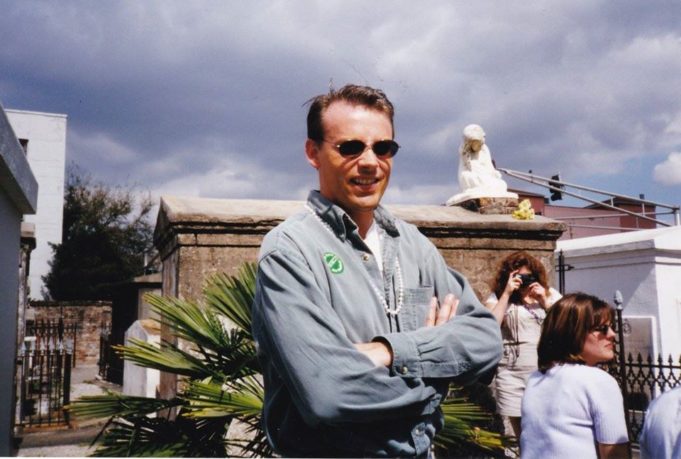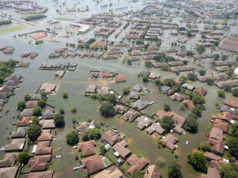With unemployment nearing 30 percent and COVID-19 stimulus checks three weeks away, the economy is high on the minds of many Fort Worthians. We reached out to John Harvey, TCU economics professor and frequent Forbes contributor, for insight into how the government stimulus may help and what history can tell us about the current economic crisis.
What are your thoughts on the current stimulus package?
I am glad they did something, but $1,200 for 10 weeks? That’s not going to be anywhere sufficient for many people. There has not been a serious [effort to help] the people who are hurt the worst.
Stopping foreclosures is helpful, but you’ll still owe the money. About 40 percent of the $2 trillion is loans. I don’t begrudge [big companies like] American Airlines getting help, but I keep thinking about that poor person who recently sunk money into a small business. Small businesses are just going to get pounded.
After a financial crisis, people are left in debt. Public sector debt doesn’t matter because the federal government is also the entity that issues dollars. Businesses in the private sector can certainly go bankrupt when they are weighed down by debt.
Do you think the federal government is doing too little or too much?
In 12 to 18 months, are we going to look back on this and think, “We missed an opportunity to cut off problems that have now multiplied”? Or are we going to say, “Oops, we paid people too much.” I’m leaning toward paying people too much.
When has taking on debt paid off before?
The federal government cannot go bankrupt. In World War II, we went into unprecedented levels of debt, and the 1950s were happy days. People weren’t worrying and thinking, “Oh, how are we going to repay all this debt?” It’s easy for the government to sell treasury bonds.
How is the current situation different than the Great Depression?
During the Great Depression, we didn’t have to worry about social distancing. We did the New Deal and had people out building parks and dams. We can’t do that right now. The government can at least cushion the blow, especially for those in those vulnerable industries. It would be better for those people to come out with less debt.
One thing that was really different [back then] was that the government was so much smaller, relative to the economy, that it couldn’t do that much. There was no welfare. It was a much more desperate situation. In 1937, unemployment came down from 25 percent to 14, and [political leaders] decided to balance the budget. Unemployment went back up to 19, and the national debt got worse because they destroyed income that could be taxed. I’m afraid we will do something like that again.
Are you worried about government stimulus checks and spending causing inflation?
There’s already inflation in terms of the hand sanitizer, toilet paper, and items that are in short supply. If we give people more money, it could exacerbate that, but that’s not the issue. I can almost guarantee there will not be a spike in inflation because oil prices have collapsed. When [a company] has to ship something and gas is $1.60, there will not be net inflation.
What is happening with unemployment?
The Federal Reserve has estimated over 30 percent unemployment. At the height of the Great Depression, it was 25 percent. [The Federal Reserve] is suggesting that this is a temporary spike. I’m not sure why they think it will be that temporary. Unemployment has never been that high in this country. It points to the fact that the government desperately needs to make sure that the average workers are supported.
Do you see another round of stimulus checks coming?
[Treasury Secretary] Steven Mnuchin basically said people can live on $17 a day for 10 weeks, and [the Federal Treasury] would have to reexamine the situation [at that time]. It sounded like they are thinking about having to [reissue checks] again.
That amounts to minimum wage.
Those people are living on very little, and they are the people who we desperately need to work right now. Their industries turn out to the essential ones. There’s a book called Are Economists as Important as Garbage Men? If all the economists stopped working, it would be a long time before anyone noticed. If the garbage man stopped working, we would notice pretty quickly. He begs the question: Which jobs are really essential and how much of our wages are driven by our subjective values rather than how important someone really is to our day-to-today lives?
What will recovery look like?
It depends. The United Kingdom is estimating that it will be six months before things return to normal. It hurts [job prospects from an employability perspective] to have five months of being out of work. That may exacerbate the shift in the distribution of income with the rich getting richer and poor getting poorer. That happened to a large extent in the 1920s when the economy was expanding [disproportionately in favor of the wealthy], and then we ended up with the Great Depression.
What are the dangers of greater disparities between the wealthy and the poor?
The more even the income [distribution] is, the more spending per dollar there is. In 2018, the richest 20 percent of Americans spent 60 percent of their income, so they saved 40 percent. Everyone else spent about 99 percent of their income. We need spending, not saving in a crisis. When you benefit the rich, it leads to less spending per dollar.
Capitalism is supposed to be about the average person, not the rich person. The idea is to set businesses against each other. We’ve twisted capitalism to help businesses. We need to make life difficult for [corporations], at least in terms of them getting our dollars, to increase competition and not end up with merger after merger.












